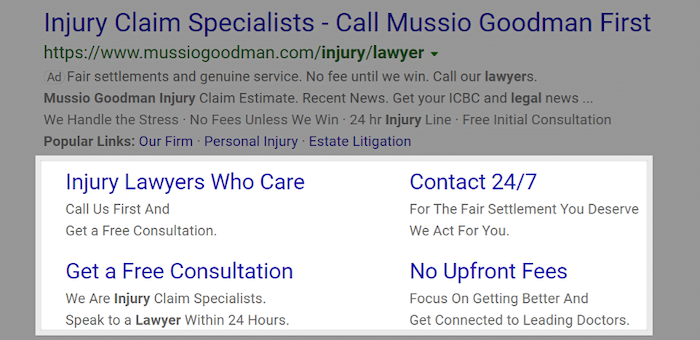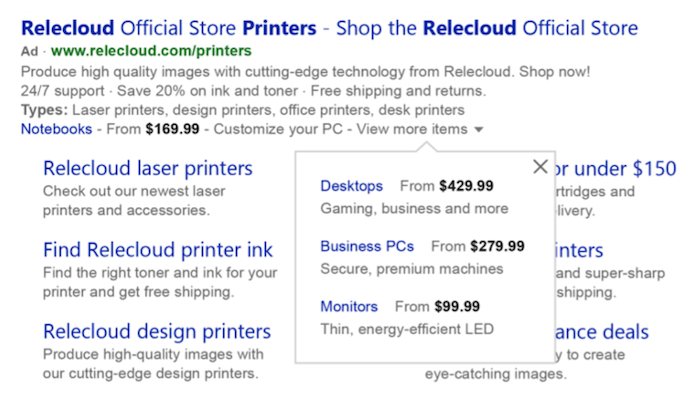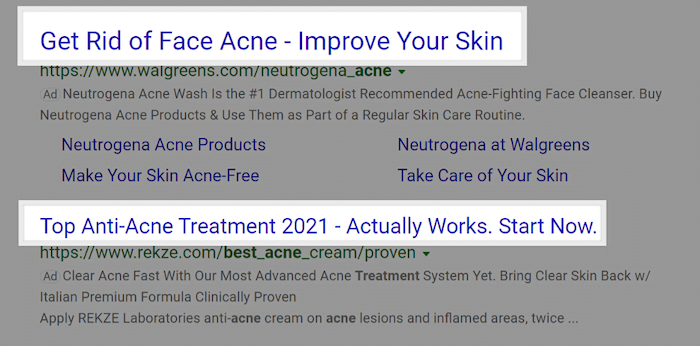
8 Must-Know Microsoft Ads Tips to Get More Clicks and Conversions
March 1, 2021
With more than 7.3 billion monthly PC searches in the United States, there’s a good chance that your potential customers are on Bing.
Although Bing doesn’t get as much recognition as Google, it still ranks as one of the world’s top search engines. In fact, one study shows that Bing has the highest conversion rate out of all advertising channels for purchases that cost more than $200. In other words, it probably makes sense for you to advertise on Bing if your business is selling higher-priced products or services.
The Microsoft ads (formerly known as Bing ads) are ads shown in Bing’s search results. When you’re creating and optimizing your Microsoft ads, there are many different things you can tweak and improve, such as targeting, keywords, and the ad itself, to enhance the performance of your ads.
In this article, we’ll primarily focus on things you can potentially improve in your ads to increase clicks and conversions. Moreover, many of the points in this article are also universally applicable to creating well-thought-out ads.
Let’s get started.
8 ways to optimize your Microsoft ads for more conversions
Here are 8 different ways you can optimize your Microsoft ads for better conversions.
1. Pre-qualify your prospects
It’s important to keep in mind that the goal of ads isn’t to get more clicks. In most cases, the goal is to convert people into becoming paying customers.
For example, if you use controversial or provocative words in your headline or an ad copy (that aren’t related to your business), you’ll certainly get more clicks on your ads. But how many of those people will turn into your customers? Most likely not too many.
Since you don’t want to waste your advertising budget on useless clicks, it’s a good idea to pre-qualify prospects in your ads to ensure you get targeted traffic.
If you look at the image below, there’s no confusion about who the ad is for. The ad doesn’t try to target all dog food buyers. It explicitly states “best dog food for boxers” in the headline to specifically target people looking for the best dog food for their boxers. So you can be quite confident that most people who click the ad likely fit that description.
2. Add a strong call to action
It’s no secret that a strong call to action (CTA) prompts people to take action. As Thomas Edison once said, “There is no expedient to which a man will not go to avoid the real labor of thinking.” In other words, you want to make things as easy as possible for people to follow.
Not only is it important to state your offer clearly in your ads, but you also want to include a call to action in your ads, telling people precisely what you want them to do next.
You can include a CTA button in your Microsoft ads using an action extension. The action extension displays a CTA button next to your ad’s description, making it easy for people to spot and click.
According to Microsoft’s internal data, action extensions positively impact both clickthrough rates and conversion rates, so I highly recommend you try your hand at implementing these features.
You can also use a sitelink extension as your CTA, like the example below, to encourage customers to take the next step. Besides, the sitelink extension helps your ad take up more space in search results, positively influencing clickthrough rates.
3. Leverage social proof
Any competent marketer understands that social proof is one of the most powerful tools you can utilize in marketing. Many of us naturally turn to others to help us decide when we have limited information about certain products or services.
If there’s strong evidence that other people find what you sell valuable, that will often serve as enough catalyst to convert people.
While it’s difficult to provide convincing enough social proof in your search ad where there’s limited space, you can still include some social proof to your ad using a review extension. The extension allows you to display a positive review from your existing customer.
Alternatively, you can simply add a social proof element to your ad text. For instance, the example below shows how the company tries to communicate the credibility of their advice by stating that their research helped millions of people make purchasing decisions.
4. Be specific with your offers
This is an important point for any type of advertising that you do, and you’d think most people would’ve caught on to the importance of being specific in advertising. But that is unfortunately not the case in many instances.
Many ads are still vague and don’t clearly showcase what they offer. For instance, if your business offers a discount, you want to communicate exactly how much discount the customer is getting rather than writing vague statements, such as “huge discounts.”
You only get limited space in the Microsoft Ads’ search engine, and it takes less than a few seconds for customers to decide if they will bother with your ads. So make sure you display the most enticing offer that’ll grab their attention.
5. List the price of your product
When people search for products or services on Bing, many are quickly scanning for information that will help them make decisions in split seconds.
Depending on the type of service or product you offer, it can be worthwhile to test the Microsoft ads’ price extension feature.
It all goes back to making things as easy as possible for your potential customers. By listing the price in your ads, you help customers make decisions quickly while filtering out those who can’t afford your product.
That said, always test to confirm if the change you make improves clicks and conversions.
6. Create multiple ads
It’s highly unlikely that the first ad you create in your Microsoft ads account will bring the best results. For this reason, you want to create several different ads before you start your ad campaign to see which one performs the best. This will greatly increase your chances of finding an ad that will yield positive returns.
When you create multiple ads for your campaign, Microsoft will evenly rotate all of your ads to ensure they all get the same level of impression. Give some time, and let each of your ads receive some impressions before you decide which one’s the winner.
One thing to note is that you don’t want to prematurely pick one ad over the other after only receiving a few impressions and conversions. I suggest you use a calculator to determine if your results are statistically significant.
7. Refer to your customers directly
This is a simple yet effective way to connect with people who view your ads. Consumers want to know what’s in it for them before they buy something, but many businesses make the mistake of babbling about why they’re so great rather than directing their message to customers.
Instead of focusing on “I” and “we” when creating your Microsoft ads, it’s better to shift your focus to customers and use more “you” in your ads. This will help your ads resonate better with people.
More importantly, write your ads as if you’re talking to another human (which you are), and you’ll likely draw more people to your ads.
People like to buy from people, so it’s generally a good idea to add some personal touch to your marketing. Try to avoid sounding like a faceless corporation when you write your ads.
8. Speak their language
You need to know your target audience to craft a compelling marketing message and communicate to them in a way that they can resonate. Are you talking to a 30-year-old man who’s looking for a reliable web hosting provider for his business website? Or are you talking to a 20-year-old woman who’s trying to get rid of her annoying acne?
If your primary target audience is younger people, for example, you wouldn’t want to talk to them as if you’re giving a lecture at university. A better way would be to write your ads in a casual tone.
Specifically, suppose you are selling an acne product to a younger audience. In that case, you may write something along the lines of, “Looking to get rid of your pimples fast for your next party?” over “Are you looking for an acne treatment that will successfully help keep your acne problem under control?”
With that said, there is never “one” right way to communicate to people in your ads. It will depend on many different factors, such as your audience’s age, gender, and background, so thorough research, along with many split tests, is imperative to creating good ads.
Which of the two ads do you think people are most likely to click?
Produce better Microsoft ads with these 8 optimizations
It takes time and many testings to optimize your Microsoft ads to their fullest potential. Let’s recap the eight optimizations covered in this post:
- Pre-qualify your prospects
- Add a strong call to action
- Leverage social proof
- Be specific with your offers
- List the price of your product
- Create multiple ads
- Refer to your customers directly
- Speak their language
These optimization techniques are intended to give you different ideas for improving your ads. But at the end of the day, the surest way to improve your ads is to split-test these ideas to find the one that yields the best return on every dollar you spend.
What you believed would work well may not turn out so great in practice, and what you thought would flop may work wonders.
About the author
Jin Choi is a writer at the MoneyNam blog, where he writes about online marketing topics.

















